How Long Do Snow Blowers Last? | Discover The Question Exactly
If you live in a place where snow is a common sight, you might be wondering how to deal with it efficiently. Shoveling snow can be exhausting and time-consuming, not to mention the risk of injuring your back or slipping on ice. That’s why many people opt for snow blowers, machines that can clear snow from your driveway, sidewalk, or lawn in a matter of minutes. But how long do snow blowers last? And what factors affect their lifespan? In this article, Bebest will introduce you to the different types of snow blowers, how they work, and how to maintain them properly. We will also give you some tips on how to choose the best snow blower for your needs and budget. By the end of this article, you will have a better understanding of snow blowers and how to make them last longer.
What Factors Affect the Life Expectancy of a Snow Blower?
If you’re pondering the potential lifespan of your snow blower, several key factors come into play. These aspects can significantly influence how long your snow blower will continue to serve you reliably. Let’s delve into each factor in more detail:
Factor 1: The Initial Cost
When it comes to snow blowers, the adage “you get what you pay for” often rings true. While a lower-priced option might seem appealing, it’s important to recognize that investing in a higher-quality snow blower upfront can pay off in the long run. While it’s tempting to opt for a budget-friendly model, these may be constructed with inferior materials and less rigorous engineering standards. In contrast, a more expensive snow blower tends to be built with greater attention to quality and durability, which can lead to a longer lifespan and better overall performance.
Factor 2: How well-maintained and looked after is it?
Similar to any machine, consistent maintenance, and proper care are essential for preserving the longevity of your snow blower. This entails a range of tasks, from routine oil changes and spark plug replacements to meticulous checks of belts, cables, and moving components. Additionally, lubricating parts and meticulously cleaning the auger and chute after use can prevent rust and corrosion. When not in use, the snow blower is further protected from the weather and potential wear by being kept in a dry, protected space.

Factor 3: How Is It Used?
The frequency and intensity of your snow blower usage play a vital role in determining its lifespan. If you primarily use it for lighter snowfall on an occasional basis, it’s likely to endure longer compared to frequent, heavy-duty usage. Employing your snow blower within its recommended parameters and avoiding overloading it, especially when dealing with wet or thick snow, helps prevent unnecessary strain on the engine and components.
Factor 4: Are Parts Easily Available?
Even with diligent care, repairs, and replacements are sometimes inevitable. The availability of replacement parts can significantly impact the longevity of your snow blower. The ability to quickly and effectively repair problems with their performance is made possible by readily available components. In contrast, challenges in sourcing parts, whether due to scarcity or discontinuation, could lead to extended downtime or even the need for premature replacement.
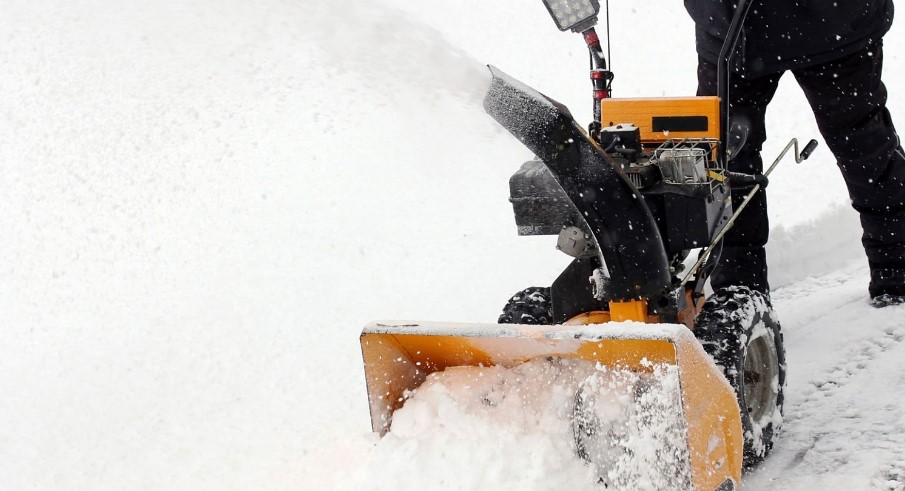
Factor 5: Will There Be Enough Snow to Clear?
Selecting a snow blower that aligns with the volume of snow you need to clear is crucial. If you have a smaller area to clear, a single-stage snow blower might suffice. Conversely, larger spaces with heavier snow accumulation demand the power of a two-stage or three-stage snow blower. While more robust models handle larger amounts of snow with greater efficiency, they often come at a higher cost and may consume more fuel.
Factor 6: Do You Want Salt With That?
Salt, commonly used for ice and snow melting, can adversely affect your snow blower’s components. Metal parts, particularly the auger, and chute, are susceptible to corrosion from salt exposure. Furthermore, salt can clog the carburetor and impede the engine’s performance. To mitigate these risks, it’s essential to thoroughly rinse your snow blower with water after each use and ensure it’s dried properly.
Factor 7: How Old is the Snow Blower?
Finally, the age of your snow blower serves as a significant factor in its potential lifespan. Over time, wear and tear are inevitable, leading to reduced efficiency and performance. Aging components might break down or become obsolete, affecting the overall functionality of the machine. While the average lifespan of a snow blower is around 10 years, this can fluctuate based on the aforementioned factors. If your snow blower has surpassed this timeline, exploring newer models might be a wise consideration.
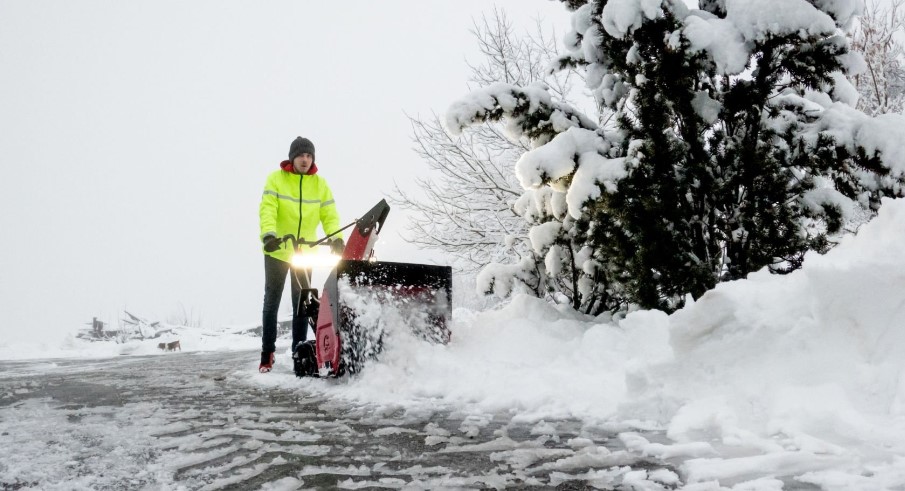
How Long Do Snow Blowers Last?
If you’re wondering how long do snow blowers last, you’re not alone. Anyone who lives in a snowy environment and wants to easily clear their driveway, sidewalk, or yard should consider investing in a snow blower. But like any machine, they have a limited lifespan and need proper maintenance to keep them running smoothly.
The average lifespan of a snow blower depends on several factors, such as the type, quality, frequency of use, and care of the machine. Generally speaking, electric snow blowers tend to last longer than gas-powered ones because they have fewer moving parts and don’t require fuel or oil changes. However, they also have less power and may struggle with heavy or wet snow.
A good-quality electric snow blower can last up to 10 years or more, while a gas-powered one may only last 5 to 8 years. Of course, this also depends on how often you use your snow blower and how well you maintain it. If you only use your snow blower once or twice a year, it will last longer than if you use it every week during the winter. Likewise, if you follow the manufacturer’s instructions for cleaning, storing, and servicing your snow blower, it will perform better and last longer than if you neglect it.
Some signs that your snow blower may be nearing the end of its life include:
- Does not start easily or at all
- Makes loud or unusual noises
- Leaks of gas or oil
- Loses power or speed
- Clogs or jams frequently
- Blows smoke or sparks
If you notice any of these problems, you may want to take your snow blower to a professional for repair or replacement. Sometimes, a simple fix can extend the life of your machine, but other times, it may be more cost-effective to buy a new one.
Snow blowers are not cheap, so you want to get the most out of them. By choosing the right type and quality of snow blower for your needs, using it properly and safely, and taking good care of it, you can enjoy many years of hassle-free snow removal.
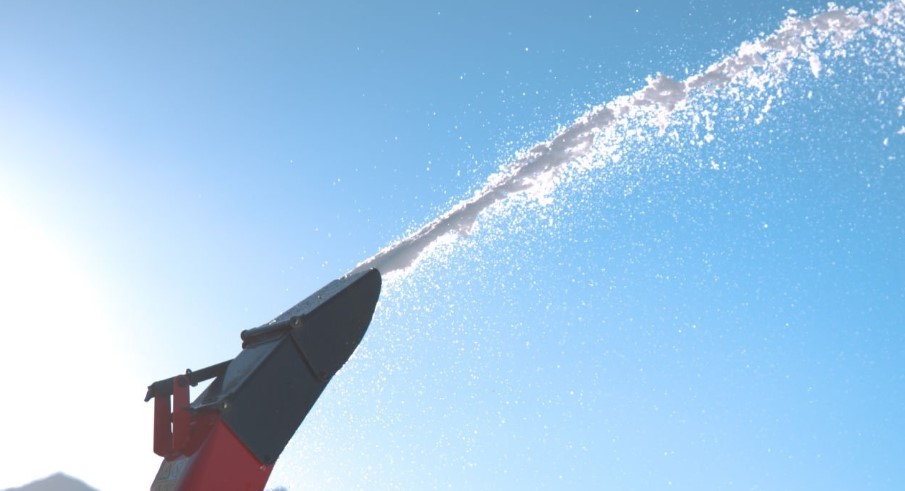
How to maintain the life of the snow blower
If you’re aiming to ensure the smooth and dependable operation of your snow blower over the years, adopting a comprehensive maintenance routine is paramount. To aid you in this endeavor, here are some essential tips to safeguard the longevity of your snow blower:
- Regular Oil Checks and Spark Plug Replacement: Prior to each usage, take a moment to inspect the oil level in the engine. Should it be insufficient, add oil as necessary according to the manufacturer’s guidelines. Additionally, examine the spark plug, and if you detect signs of wear or grime, it’s advisable to replace it promptly. These seemingly minor steps can have a significant impact on your snow blower’s overall performance and lifespan.
- Post-Use Thorough Cleaning: After every snow-clearing session, dedicate time to a thorough cleaning regimen. Employ a brush or cloth to meticulously remove accumulated snow, ice, and debris from the auger, chute, and impeller. This practice not only prevents blockages but also maintains optimal functionality. Moreover, applying a suitable lubricant to the moving components safeguards against the development of rust and corrosion, bolstering your snow blower’s durability.
- End-of-Season Fuel Maintenance: As the snow season draws to a close, execute essential fuel-related measures. Begin by draining the fuel tank, ensuring it’s devoid of any residual fuel. Next, run the engine until it comes to a halt; this action prevents the formation of clogs and gumming within the carburetor. Introducing a fuel stabilizer to the gas tank safeguards the fuel from deterioration during the off-season, promoting optimal starting performance when winter returns.
- Thoughtful Storage Practices: Where you store your snow blower plays a pivotal role in its longevity. Choose a dry and cool location, steering clear of direct sunlight and sources of heat. Shield the machine from dust and moisture by draping it with a tarp or cloth. By providing a protective environment, you’re minimizing the risk of rust and other forms of corrosion that can impact its functioning.
- Annual Professional Tune-Up: Annually schedule a visit to a professional service center to ensure your snow blower is operating at its best. This comprehensive tune-up involves an in-depth evaluation of belts, cables, gears, and various components. Any necessary adjustments or repairs can be promptly undertaken by skilled technicians, ensuring your snow blower remains in top-notch condition.
By adhering to these straightforward yet crucial guidelines, you’re not only enhancing the performance of your snow blower but also extending its lifespan. A well-maintained snow blower promises reliable and efficient snow removal for countless winters, offering peace of mind as you face the challenges of the colder months.
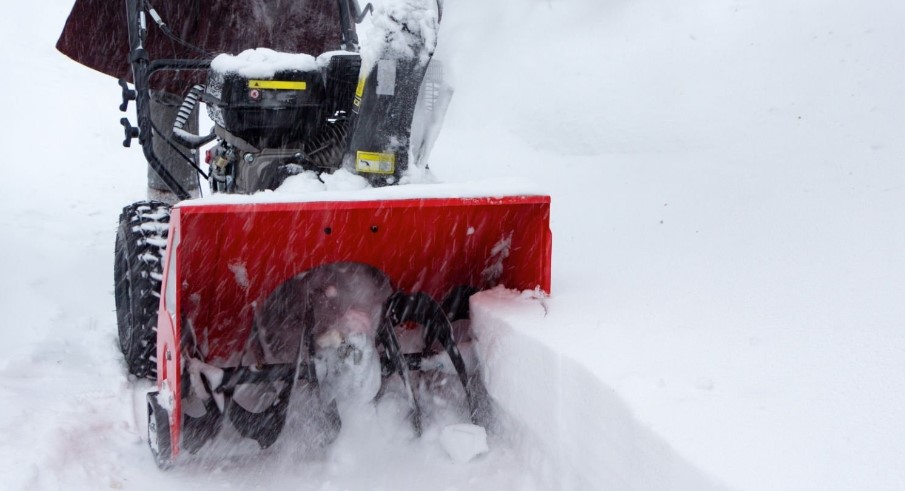
FAQs
If you’re wondering about some common questions related to snow blowers, you’ve come to the right place. In this paragraph, I’ll try to answer some FAQs that might help you make the best decision for your snow removal needs.
Do snow blowers need maintenance?
Yes, they do. Snow blowers are machines that work under harsh conditions, so they need regular care and attention to keep them running smoothly and efficiently. You should check the oil level, replace the spark plug, clean the air filter, lubricate the auger and chute, and check the belts and cables, among other maintenance chores.
What is the most reliable snowblower brand?
This is a tricky question because different brands have different strengths and weaknesses, and different models suit different preferences and budgets. However, some of the brands that have a good reputation for quality and durability are Honda, Toro, Ariens, Husqvarna, and EGO.
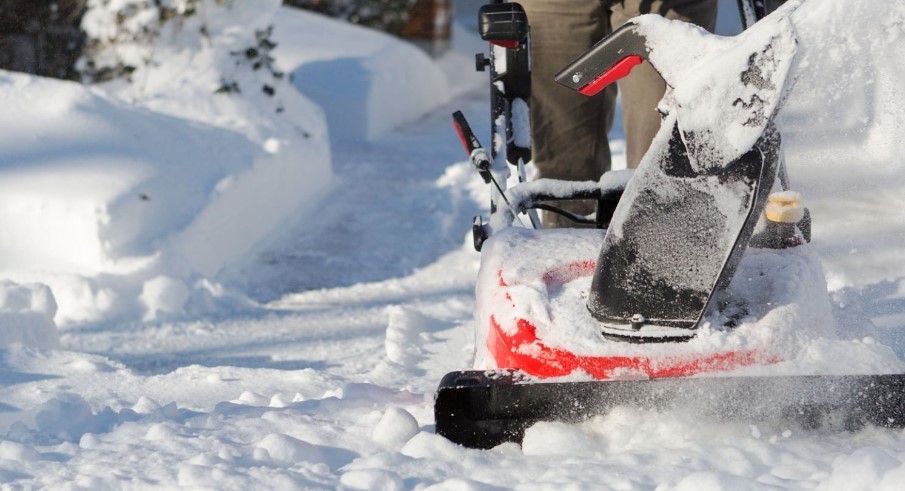
How often should you service your snow blower?
It depends on how often and how long you use your snow blower, but a general rule of thumb is to service it at least once a year, preferably before the winter season starts. This way, you can avoid any problems or breakdowns when you need your snow blower the most.
How long do snowblower belts last?
Again, this depends on how much you use your snow blower, but typically, snowblower belts can last for several years if they are properly maintained. However, if you notice any signs of wear and tear, such as cracks, fraying, or slipping, you should replace them as soon as possible to prevent further damage or accidents.
Final Thoughts
In the face of winter’s snowy challenges, snow blowers stand as reliable allies, simplifying the arduous task of snow removal. As we conclude our exploration into the lifespan of snow blowers, it becomes evident that their longevity is a result of a combination of factors. While there is no one-size-fits-all answer to how long snow blowers last, a combination of factors ranging from build quality and maintenance to usage patterns and environmental conditions dictate their lifespan. By making informed decisions, investing in reputable brands, and adopting diligent maintenance practices, you can ensure that your snow blower remains a dependable companion through many winters to come.
Related Articles